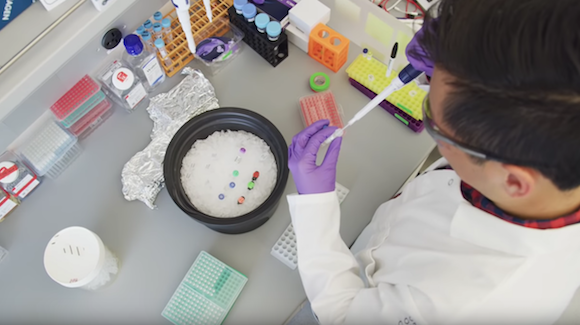Arthralgia more common with aromatase inhibitors
Reuters Health • The Doctor's Channel Daily Newscast
The authors of the paper on carpal tunnel syndrome note that the condition was rare and cases were typically not severe or long-lasting. “Carpal tunnel syndrome has little impact on the overall risk-to-benefit ratio for the use of (the aromatase inhibitor) anastrozole in postmenopausal women with early breast cancer,” Dr. Ivana Sestak of Cancer Research UK in London and her colleagues say.
They point out that carpal tunnel syndrome has been reported in patients on third-generation aromatase inhibitors, and clinical trials have found musculoskeletal symptoms to be more common with these drugs than with tamoxifen or placebo.
Dr. Sestak and her colleagues analyzed data on 3,092 postmenopausal women receiving anastrozole and 3094 taking tamoxifen as part of the Arimidex, Tamoxifen, Alone or in Combination (ATAC) Trial (which was funded in part by AstraZeneca, the maker of anastrozole).
At a median follow-up of 100-months, carpal tunnel syndrome had developed in 80 women taking anastrozole and in 23 taking tamoxifen. Most cases developed early in the course of treatment, and were of mild to moderate severity. Eleven women taking anastrozole and two taking tamoxifen had surgery to treat CTS.
Women in the anastrozole arm who had previously received hormone replacement therapy or chemotherapy were at higher risk of carpal tunnel syndrome. Risk was lower for women who were at least 60 years old at baseline.
None of the women in the study stopped taking the medication due to carpal tunnel symptoms.
In a separate study, Dr. Omer Dizdar of Hacettepe University Medical School in Ankara, Turkey and his colleagues found that nearly a third of postmenopausal breast cancer patients taking adjuvant aromatase inhibitors had new or worsening arthralgia, most often in the knee, wrist and small joints of the hand.
In sonographic and electrodiagnostic studies of 92 patients taking aromatase inhibitors and 28 breast cancer patients who served as controls, the investigators found higher rates of effusion in hand joints and tendons of patients receiving the drugs, as well as increased tendon thicknesses. Also, significantly more patients on aromatase inhibitors had electromyography findings indicating carpal tunnel syndrome. The women taking aromatase inhibitors had no signs of systemic inflammation, however.
While adherence to aromatase inhibitors in clinical trials has been “favorable,” Dr. Rowan T. Chlebowski of Harbor UCLA Medical Center in Torrance, California notes in an editorial accompanying the studies, “in clinical practice the arthralgias associated with aromatase inhibitor use adversely influence adherence.”
There is a lack of proven treatments for aromatase inhibitor-associated arthralgias, Dr. Chlebowsky adds, although current evidence suggests that high-dose non-steroidal anti-inflammatory drugs, as well as calcium and bisphosphonates, may be helpful. However, he warns, studies of high-dose vitamin D have not shown benefit, and supplementation with the vitamin can have adverse effects, including gastrointestinal symptoms and renal disease.
“At present,” he concludes, “oncologists should carefully observe their patients for development of this problem, clearly express to their patients the benefits of continued adherence, and provide the limited available therapies.”
Reference:
J Clin Oncol 2009.






